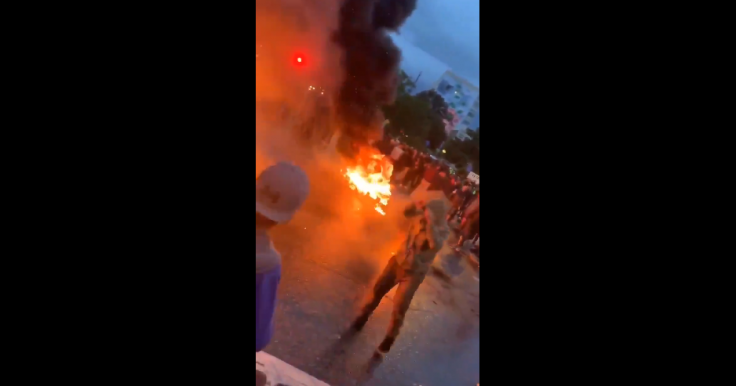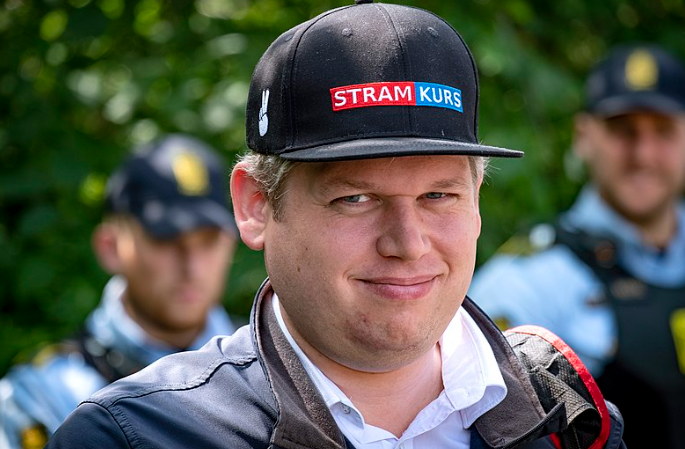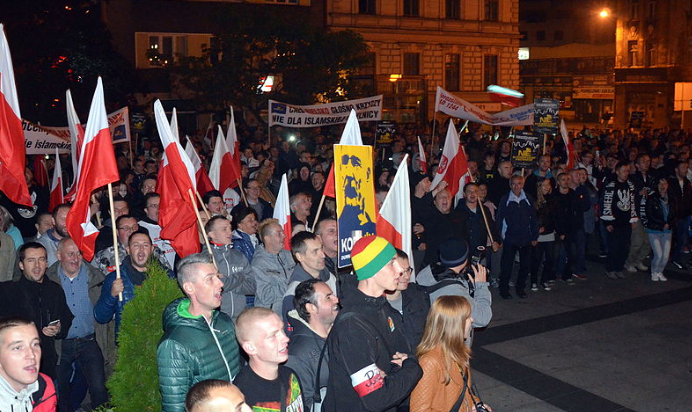Sweden-Turkey relations worsened further after anti-Turkey protests in Stockholm saw the burning of the Koran in front of the Turkish embassy in the capital city. Stockholm witnessed three-way protests in the capital as agitators trooped into capital protesting against the Swedish bid to join the Nato even as yet another group of pro-Turkey protesters marched outside the embassy.
Rasmus Paludan
The burning of the Koran was carried out by Rasmus Paludan, the leader of Danish far-right political party Hard Line. The far right leader had staged Koran-burning protests earlier as well. Paludan said the act was in protest against Turkey's attempts to curb freedom of speech in the Nordic country.

The Turkish foreign ministry condemned the act. "We condemn in the strongest possible terms the vile attack on our holy book ... Permitting this anti-Islam act, which targets Muslims and insults our sacred values, under the guise of freedom of expression is completely unacceptable," a statement issued by the ministry said, according to France 24.
Sweden's foreign ministry said it does not approve of the extreme form of protests carried out by Paludan's anti-immigrant party. "Sweden has a far-reaching freedom of expression, but it does not imply that the Swedish Government, or myself, support the opinions expressed," Swedish Foreign Minister Tobias Billstrom said.
Erdogan Effigy Hanged
Last week, Kurdish workers Party (PKK) activists hanged an effigy of President Tayyip Erdogan by its leg in the Swedish capital and called him a dictator. The act of protest was staged by the Swedish Solidarity Committee for Rojava, which represents the Kurdish territories of Syria.

Nato Bid
Sweden and Turkey are locked in a diplomatic tussle over Stockholm's bid to join the North Atlantic Treaty Organization (Nato). Under Nato laws, all members of the bloc must ratify a new member's application, but Turkey has said it will hold off on the applications of Sweden and Finland over what it says these countries' support to the Kurdish movement.
The PKK fights for a Kurdish nation in a region intersecting Syria, Iraq and Turkey. Ankara considers PKK, which fought the Turkish state for the creation of an independent Kurdish territory, as a terror organization.

The Kurdish rights groups have been stepping up pressure on Stockholm in recent months, after the Erdogan regime started pressing for tough measures against Kurdish activists in Sweden. The Kurds in Sweden say that giving in to Turkish demands violates human rights and that Ankara will only keep pressing for more such measures.
During Saturday's anti-Turkey protests, demonstrators displayed a large banner that read "We are all PKK", according to Reuters. On Saturday, Turkey cancelled the visit of Swedish defence minister to Ankara over the protests. "It is unacceptable not to make a move or react to these (protests). The necessary things needed to be done, measures should have been taken," Turkish Defence Minister Hulusi Akar said.








